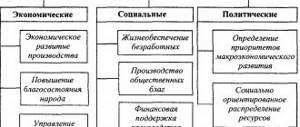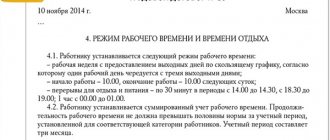Forced labor is considered to be the performance of any work under threat of punishment; this is a gross violation of human rights and freedoms. Its widespread use dates back to the mid-20th century. The governments of many countries and international organizations have actively combated this phenomenon. One of its forms is slavery. Forced labor is prohibited by the Convention for the Protection of Human Rights, the Convention of the International Labor Organization (ILO) and the Slavery Convention, and in Russia also by the Constitution and the Labor Code.
What is forced labor
Russian legislation defines the concept of forced labor as work, the requirement to perform which is accompanied by threats or violent influence. At the same time, the legislator identifies two circumstances that are signs of forced labor:
- the first circumstance is the fact that the person did not offer his services voluntarily;
- The second circumstance includes the presence of punishment for refusal to perform work.
In other words, forced labor is work for which the employee did not give his voluntary consent. In practice, coercion to work overtime is most often encountered, including through the confiscation of documents from an employee, etc. But punishment should be understood as deprivation of rights and privileges.
Although the legislator does not give clear instructions in this regard. Therefore, punishment on the part of the employer for refusal to perform work under duress may also include physical force. According to international treaties and labor legislation, a citizen has the right to refuse to perform work if he regards it as forced labor.
The use of forced labor is prohibited by law.
This also includes discrimination in labor relations. All citizens have equal rights to work, therefore only the business qualities of each individual are taken into account. Opportunities, as well as pay, cannot depend on circumstances such as nationality, race, gender, religious beliefs, etc. Such discrimination against an employee is prohibited by law. These standards are contained in ILO Convention No. 111. The employer is responsible for discrimination.
Labor legislation provides for circumstances that cannot be regarded as discrimination, but nevertheless limit the rights of employees. This is permitted primarily to protect citizens. Such circumstances most often include medical examination and professional selection of employees to perform highly specialized work.
Commentary on Article 4 of the Labor Code of the Russian Federation
The article under comment is based on the provisions of Part 2 of Art. 37 of the Constitution of the Russian Federation, which establishes that forced labor is prohibited. The principle of prohibition of forced labor, enshrined in Art. 2 of the Labor Code, as one of the generally recognized principles of legal regulation of labor relations and other relations directly related to them, was fully developed in the commented article. This principle is interconnected with other basic principles enshrined in Art. 2 of the Labor Code: on the prohibition of discrimination and freedom of labor, including the right to work, which everyone freely chooses or to which one freely agrees, the right to manage one’s ability to work, to choose a profession and type of activity. The prohibition of forced labor is impossible without free labor or discrimination, because forced labor itself contains a denial of freedom of labor. To the same extent, freedom of labor is impossible without the prohibition of forced labor or the prohibition of discrimination.
Part 2 of this article defines forced labor and its forms in accordance with the provisions of Part 2 of Art. 8 of the UN International Covenant “On Civil and Political Rights” (1966) <1>, part 2 of Art. 4 of the European Convention for the Protection of Human Rights and Fundamental Freedoms (1950; as amended on May 13, 2004) <2> and ILO Conventions: No. 29 “On Forced or Compulsory Labor” (1930) <3>, N 105 “On the abolition of forced labor” (1957) <4>. Part 2 of the commented article provides a definition of forced labor, which is based on the provisions of ILO Convention No. 29. According to this Convention, forced or compulsory labor means “any work or service required of any person under threat of any penalty, for which this person did not voluntarily offer his services” (Part 1 of Article 2 of the Convention) <5>.
——————————— <1> BVS of the Russian Federation. 1994. N 12. <2> SZ RF. 1998. N 14. Art. 1514; N 20. Art. 2143; 2001. N 2. Art. 163; 2010. N 6. Art. 567. <3> USSR Air Force. 1956. N 12. Art. 253. <4> NW RF. 1998. N 12. Art. 1348. <5> The Labor Code defines forced labor as performing work under the threat of any punishment (forceful influence, including as a means of maintaining labor discipline).
Part 3 of the commented article also classifies as forced labor work that an employee is forced to perform under the threat of any punishment (violent influence) and which he can refuse due to violation of established deadlines for payment of wages (Article 142 of the Labor Code) or in case of non-compliance labor protection requirements that threaten his life and health (Article 220 of the Labor Code).
These provisions go beyond the generally accepted concept of forced labor in comparison with the specified ILO Conventions. But performing work if the deadlines for payment of wages are violated or if it is not paid in full, or if there is a threat to the life or health of the employee, is a violation of the employee’s fundamental rights to payment and labor protection, guaranteed by the Constitution of the Russian Federation (Part 3 of Article 37).
The principle of prohibition of forced labor is embodied in the Labor Code (see Articles 142, 220, 236, 237 and commentary thereto). At the same time, it is established that in the event of violations by the employer in remuneration of the employee, he has the right to suspend work in the manner provided for in Art. 142 of the Labor Code, for the entire period until payment of the delayed amount, taking into account monetary compensation established by Art. 236 of the Labor Code, and possible compensation for moral damage in accordance with Art. 237 TK.
In accordance with Art. 219 of the Labor Code, an employee has the right to refuse to perform work if a danger to his life and health arises due to violation of labor protection requirements (except for cases provided for by federal law) until such danger is eliminated. In addition, an employee’s refusal to perform work in the event of such a danger or refusal to perform heavy work and work with harmful and (or) dangerous working conditions not provided for by the employment contract does not entail bringing him to disciplinary liability (see Art. 220 TK).
Part 4 of the commented article is brought into full compliance with the Convention “Concerning Forced or Compulsory Labor”, from which it follows that any work or service required in emergency circumstances is not considered forced labor, i.e. in case of wars or disasters or threats of disasters, etc., and in general circumstances threatening the life or normal living conditions of all or part of the population.
First of all, forced labor does not include work the performance of which is stipulated by the legislation on conscription and military service or an alternative civil service that replaces it. This is provided:
1) art. 1 Federal Law of March 28, 1998 N 53-FZ “On Military Duty and Military Service” (as amended on November 21, 2011) <1>;
——————————— <1> NW RF. 1998. N 13. Art. 1475; N 30. Art. 3613; 2000. N 33. Art. 3348; N 46. Art. 4537; 2001. N 7. Art. 620, 621; N 30. Art. 3061; 2002. N 7. Art. 631; N 21. Art. 1919; N 26. Art. 2521; N 30. Art. 3029, 3030, 3033, 3111; 2003. N 1. Art. 1; N 8. Art. 709; N 27. Art. 2700; N 46. Art. 4437; N 52 (part 1). Art. 5038; 2004. N 8. Art. 600; N 17. Art. 1587; N 18. Art. 1687; N 25. Art. 2484; N 27 (part 1). Art. 2711; N 35. Art. 3607; N 49. Art. 4848; 2005. N 10. Art. 763; N 14. Art. 1212; N 27. Art. 2716; N 29. Art. 2907; N 30 (part 1). Art. 3110, 3111; N 40. Art. 3987; N 43. Art. 4349; N 49. Art. 5127; 2006. N 1. Art. 10; 22; N 11. Art. 1148; N 19. Art. 2062; N 28. Art. 2974; N 29. Art. 3121, 3122, 3123; N 41. Art. 4206; N 44. Art. 4534; N 50. Art. 5281; 2007. N 2. Art. 362; N 16. Art. 1830; N 31. Art. 4011; N 45. Art. 5418; N 49. Art. 6070, 6074; N 50. Art. 6241; 2008. N 30 (part 2). Art. 3616; N 49. Art. 5746; N 52 (part 1). Art. 6235; 2009. N 7. Art. 769; N 18 (part 1). Art. 2149; N 23. Art. 2765; N 26. Art. 3124; N 48. Art. 5735, Art. 5736; N 51. Art. 6149; N 52 (part 1). Art. 6404; 2010. N 11. Art. 1167, Art. 1176, Art. 1177; N 31. Art. 4192; N 49. Art. 6415; 2011. N 1. Art. 16; N 27. Art. 3878; N 30 (part 1). Art. 4589; RG. 2011. 26 Nov.
2) Art. Art. 10, 26, 27 of the Federal Law of May 27, 1998 N 76-FZ “On the status of military personnel” (as amended on April 21, 2011) <1>;
——————————— <1> NW RF. 1998. N 22. Art. 2331; 2000. N 1 (part 2). Art. 12; 2000. N 26. Art. 2729; N 33. Art. 3348; 2001. N 1 (part 1). Art. 2; N 31. Art. 3173; N 53 (part 1). Art. 5030; 2002. N 1 (part 1). Art. 2; N 19. Art. 1794; N 21. Art. 1919; N 26. Art. 2521; N 48. Art. 4740; N 52 (part 1). Art. 5132; 2003. N 46. Art. 4437; N 52 (part 1). Art. 5038; 2004. N 18. Art. 1687; N 30. Art. 3089; N 35. Art. 3607; 2005. N 17. Art. 1483; 2006. N 1. Art. 12; N 6. Art. 637; N 19. Art. 2062, 2067; N 29. Art. 3122; N 31 (part 1). Art. 3452; N 43. Art. 4415; N 50. Art. 5281; 2007. N 1 (part 1). Art. 41; N 2; Art. 360; N 10. Art. 1151; N 13. Art. 1463; N 15. Art. 1820; N 26. Art. 3086, 3087; N 31. Art. 4011; N 45. Art. 5431; N 49. Art. 6072; N 50. Art. 6237; 2008. N 24. Art. 2799; N 29 (part 1). Art. 3411; N 30 (part 2). Art. 3616; N 44. Art. 4983; N 45. Art. 5149; N 49. Art. 5723; N 52 (part 1). Art. 6235; 2009. N 7. Art. 769; N 11. Art. 1263; 2009. N 30. Art. 3739; N 52 (part 1). Art. 6415; 2010. N 30. Art. 3990; N 50. Art. 6600; 2011. N 1. Art. 16, art. thirty; N 17. Art. 2315.
3) clause 3 art. 1 Federal Law of May 31, 1996 N 61-FZ “On Defense” (as amended on April 5, 2011) <1>;
——————————— <1> NW RF. 1996. N 23. Art. 2750; 2000. N 1 (part 1). Art. 6; 2003. N 27 (part 1). Art. 2700; N 46 (part 1). Art. 4437; 2004. N 27. Art. 2711; N 35. Art. 3607; 2005. N 10. Art. 763; N 15. Art. 1276; N 52 (part 1). Art. 5598; 2006. N 28. Art. 2974; N 29. Art. 3123; N 50. Art. 5279; 2007. N 26. Art. 3076; N 27. Art. 3213; 2008. N 29 (part 1). Art. 3418; N 30 (part 2). Art. 3616; 2009. N 15. Art. 1779; N 45. Art. 5270; 2010. N 19. Art. 2283, art. 2291; N 31. Art. 4192; N 52 (part 1). Art. 6992; 2011. N 15. Art. 2021.
4) Art. 10 Federal Law dated 02/26/1997 N 31-FZ “On mobilization preparation and mobilization in the Russian Federation” (as amended on 03/09/2010) <1>;
——————————— <1> NW RF. 1997. N 9. Art. 1014; 1998. N 29. Art. 3395; 2000. N 32. Art. 3341; 2004. N 35. Art. 3607; 2006. N 1. Art. 10; N 6. Art. 637; N 44. Art. 4534; 2010. N 11. Art. 1176.
5) Decree of the Government of the Russian Federation of May 29, 2006 N 333 “On military training and some issues of ensuring the fulfillment of military duty” (as amended on December 17, 2010) <1>;
——————————— <1> NW RF. 2006. N 23. Art. 2525; 2009. N 2. Art. 222; 2010. N 52 (part 1). Art. 7104.
6) Regulations on the procedure for military service, approved by Decree of the President of the Russian Federation of September 16, 1999 N 1237 (as amended on September 30, 2011) <1>;
——————————— <1> NW RF. 1999. N 38. Art. 4534; N 42. Art. 5008; 2000. N 16. Art. 1678; N 27. Art. 2819; 2003. N 16. Art. 1508; 2006. N 25. Art. 2697; 2007. N 11. Art. 1284; N 13. Art. 1527; N 29. Art. 3679; N 35. Art. 4289; N 38. Art. 4513; 2008. N 3. Art. 169, 170; N 13. Art. 1251; N 43. Art. 4919; 2009. N 2. Art. 180; N 18 (part 2). Art. 2217; N 28. Art. 3519; N 49 (part 2). Art. 5918; 2010. N 27. Art. 3446; 2011. N 4. Art. 572; N 13. Art. 1741; N 40. Art. 5532.
7) art. 21 of the Federal Law of July 25, 2002 N 113-FZ “On Alternative Civil Service” (as amended on March 9, 2010) <1>.
——————————— <1> NW RF. 2002. N 30. Art. 3030; 2004. N 35. Art. 3507; 2006. N 1. Art. 22; N 29. Art. 3122; 2010. N 11. Art. 1176.
Work that is performed in emergency circumstances (accidents, fires, floods, earthquakes and other emergency circumstances that threaten the life and livelihoods of the population) is not considered forced labor. Federal Constitutional Law of May 30, 2001 N 3-FKZ “On a State of Emergency” (as amended on March 7, 2005) <1> provides, in exceptional cases, the possibility of mobilizing the working population and attracting citizens’ vehicles to carry out emergency rescue and other urgent work .
——————————— <1> NW RF. 2001. N 23. Art. 2277; 2003. N 27 (part 1). Art. 269; 2005. N 10. Art. 753.
Forced labor does not include work performed in execution of a sentence under a court verdict that has entered into legal force. This can be serving a sentence in the form of compulsory labor (Articles 25 - 30 of the Penal Code), which is carried out by the penal inspection at the place of residence of the convicted person, or correctional labor served at the main place of work of the person sentenced to correctional labor (Article 39 of the Penal Code) . Sentenced to imprisonment in accordance with Art. 103 of the PEC is obliged to work in places and at jobs determined by the administration of correctional institutions.
It should be borne in mind that the execution of various types of punishment under a court verdict that has entered into legal force with the involvement of convicts in labor is carried out in compliance with the provisions of labor legislation (including legislation on labor protection) and criminal executive legislation.
Types of forced labor
The Labor Code defines the types of labor that are considered forced. And the prohibition of forced labor is the responsibility of the state. These types are:
- work to maintain labor discipline;
- work as a punishment for participating in a strike;
- work as a means of mobilization;
- work as punishment for political or ideological beliefs;
- work as a measure of racial or national discrimination.
In addition, labor legislation distinguishes between certain categories and forms of forced labor. According to this, they are the delay of wages or part thereof and forced performance of work dangerous to life and health without the necessary protection. It is important to know that the legislator does not make this list exhaustive, which means that each case of forced labor is individual.
Territoriality of PR
Discrimination against forced labor penetrates into all spheres and types of society, regardless of origin, historical background, period of formation, economic structure, and so on. This phenomenon can exist in both developed and poor countries, and is not limited to one area on the planet. This is largely due to the fact that the Forced Labor Convention and the ILO do not contain very specific standards. Most of them are not binding norms.
In this regard, in many countries there are different interpretations of the meaning of international acts. Thus, some believe that forced labor is closely related to the totalitarian regime, as well as severe human exploitation. The second option would introduce new terms such as “modern slavery” or “practices similar to slavery.” These concepts are associated with unsatisfactory and harmful working conditions, and also refer to low wages.
What jobs are not considered forced labor?
ILO Convention No. 29 also defines those jobs that cannot be classified as forced labor. In other words, there are cases where circumstances force employers to force employees to perform work that may amount to forced work, but is not. These are the following types of work:
- work that must be performed in connection with military service or military duties;
- work performed during a natural disaster and other emergency circumstances;
- work that is performed under a court order.
The legislator made this list exhaustive, that is, the employer does not have the right to make any changes to it and force employees to work under the pretext of extreme necessity. There are also a number of restrictions that allow workers to be forced to work.
First of all, this concerns the performance of one’s duties during emergencies, martial law, etc. This includes the duration of work, as well as professional, medical and age restrictions. In addition, the Labor Code contains norms indicating the periods during which work with unpaid wages cannot be equated to forced labor.
Work that is established by the court includes correctional work, as well as work that is the responsibility of prisoners in places of deprivation of liberty.
This is the so-called forced labor system. That is, convicted persons are forced to work, which is absolutely legal. At the same time, prisoners should be recruited to work depending on their age, health status, etc.
As for the involvement of convicted citizens in work that is necessary for the improvement of a correctional institution, the legislator directly indicates that they cannot be equated to forced labor. These works contain a system of forced labor, therefore they are regarded as socially useful labor, to which prisoners can be involved.
Discrimination in the world of work
Recently, when posting recruitment advertisements, companies often indicate certain restrictions on gender, age, marital status, and other “undesirable” indicators. Of course, if there are objective reasons for this (for example, work involving toxic substances, where it is prohibited to involve pregnant women), the enterprise is acting legally. But usually these are the prejudices of specific managers.
Responsibility for forced labor
The prohibition of forced labor is regulated by Russian legislation, which is why it also establishes certain liability. What could this responsibility be? First of all, it is important to understand that punishment for forced labor is not provided for as a separate provision of law.
For a short time, regulations contained rules that provided for administrative liability for forced labor. The punishment was in the form of a fine, which was imposed in court. Unfortunately, this regulation has been repealed.
The current Employment Law does not provide for separate liability for forced labor.
However, administrative legislation contains a rule that establishes liability for violation of the labor protection law. It includes administrative liability as well as disqualification. In this case, punishment can only be applied to an official.
As for criminal legislation, it also does not contain provisions directly indicating liability for forced labor. The only thing for which an employer can be held accountable according to the Criminal Code of the Russian Federation is non-payment of wages and other payments, as well as violation of labor safety rules. Labor legislation also contains rules that imply administrative and disciplinary liability for forced labor.
In general, any exploitation of employees may be considered forced labor or discrimination. At the same time, there are cases of forced labor not only for a specific employee, but also for the entire team. Citizens who have been exploited by an employer can go to court or the labor inspectorate for damages.
Author of the article
What are the dangers of forced labor?
Article 4 of the Labor Code of the Russian Federation contains a direct ban on forced labor.
For violation of this norm, various penalties are applied. Read: Disciplinary sanctions, their types and procedure for application
The Administrative Code considers this as a violation of labor legislation under Art. 5.27 and 5.27.1. The amount of the fine that is collected in this case is up to 5 thousand rubles for officials and individual entrepreneurs, up to 50 thousand rubles for organizations.
The Criminal Code provides for liability for the use of slave labor, which is punishable by forced labor for up to 5 years. If a crime was committed against minors or several persons, violence was used or documents were confiscated, then imprisonment for a term of up to 10 years is possible. In case of harm to the life or health of citizens through the use of slave labor or the occurrence of other grave consequences, the perpetrators face imprisonment for a term of up to 15 years.
Thus, forced labor in any form on the territory of the Russian Federation is prohibited by law.
How to properly draw up an employment contract with piecework wages
Each employment contract (piece-rate wages) requires the employer to draw up certain nuances when drawing up. In particular, it must provide for how non-working holidays will be paid for, as well as set prices. Since the norms of Article 57 of the Labor Code of the Russian Federation directly provide for the employer’s obligation to indicate in the contract with employees all conditions of remuneration, namely:
- the size of the employee's tariff rate (official salary),
- surcharges,
- allowances and incentive payments,
- prices per unit of products produced or work (services) performed.
However, it is allowed for the document to contain references to internal local acts that set prices at the enterprise for a manufactured unit of product (another operation or work, service) and production standards. In this case, in the text of the TD you can write the following phrase:
A piecework wage system is established for the employee. Wages are calculated based on piece rates established in the wage regulations and the amount of work performed by the employee.
In this case, the employee with whom the TD is concluded must be familiarized with the order or other local act against signature at the time of employment. At the same time, it is important to remember that in accordance with the requirements of Article 136 of the Labor Code of the Russian Federation, wages to workers with piecework wages must be paid in the general manner, namely at least twice a month, with an interval of no more than 15 days between payments.
ConsultantPlus:Forums
Let's start with the Constitution of the Russian Federation: Article 37 3. Everyone has the right to work in conditions that meet safety and hygiene requirements, to remuneration for work without any discrimination and not lower than the minimum wage established by federal law, as well as the right to protection from unemployment. (You also need to respect your friend. She doesn’t want to take money, that’s her right. But you have to offer. You’ll drink beer with this money together.) Labor Code of the Russian Federation: Chapter 48. PECULIARITIES OF LABOR REGULATION OF EMPLOYEES WORKING FOR EMPLOYERS - INDIVIDUALS Article 303. Peculiarities of labor contract concluded by an employee with an employer - an individual When concluding an employment contract with an employer - an individual, the employee undertakes to perform work not prohibited by law, determined by this agreement. A written employment contract must include all conditions essential for the employee and the employer. An individual employer is obliged to: draw up an employment contract with an employee in writing and register this contract with the relevant local government body; pay insurance premiums and other obligatory payments in the manner and amounts determined by federal laws; issue insurance certificates of state pension insurance for persons entering work for the first time. Article 304. Duration of an employment contract By agreement of the parties, an employment contract between an employee and an employer - an individual can be concluded for both an indefinite and a definite period. Article 305. Work and rest schedules The work schedule, the procedure for providing days off and annual paid leave are determined by agreement between the employee and the employer - an individual. In this case, the length of the working week cannot be greater, and the duration of annual paid leave less than those established by this Code. Article 307. Termination of an employment contract In addition to the grounds provided for by this Code, an employment contract with an employee working for an individual employer may be terminated on the grounds provided for in the employment contract. The notice period for dismissal, as well as the cases and amounts of severance pay and other compensation payments paid upon termination of the employment contract are determined by the employment contract. Article 309. Documents confirming work with employers - individuals A document confirming the time of work with an employer - individual is a written employment contract. An individual employer does not have the right to make entries in the work books of employees, as well as to issue work books to employees hired for the first time. (You will have to draw up an employment contract. It will be very easy for your friend, if she does not want to disclose her new place of work. The entry is not made in the work book, it is not registered in the tax agreement... Work - I don’t want to!) Form of the contract (if the lines “go” , not my fault): Appendix 1 to the Procedure for registration of employment contracts concluded by employees and employers - individuals SAMPLE FORM OF AN EMPLOYMENT AGREEMENT ___________________________ represented by ______________________________, (name of the employer) (full full name of the employer) hereinafter referred to as “Employer” , and a citizen of the Russian Federation ____________ _________________________________________________________________, (full full name) hereinafter referred to as “Employee”, have entered into this employment contract on the following terms: 1. Employee ______________________________________________________ (full full name) is hired _____________________________________________________ (place work, structural unit) by profession (position) __________________________________________ (full name of profession (position) _________________________________________________________________, according to the ETKS) qualifications _____________________________________________________ (rank, qualification category) from _______________________ (start date of work) 2. Type of employment contract: for an indefinite period ___________________________________________ for a certain period from __________________ to _____________________ 3. Test period (no more than 3 months) ___________________________ 4. The employee has the right to: - change and terminate this employment contract in the manner and under the conditions established by the Labor Code of the Russian Federation and other federal laws; - providing him with work stipulated by this agreement; — a workplace with working conditions that meet the requirements of state standards of organization, safety and hygiene; — timely and full payment of wages in accordance with their qualifications, complexity of work, quantity and quality of work performed; - compensation for harm caused to him in connection with the performance of his job duties, and compensation for moral damage in the manner established by the Labor Code of the Russian Federation and other federal laws; - other rights provided for in Art. 21 and 219 of the Labor Code of the Russian Federation. 5. The employee is obliged to: - observe labor discipline and internal labor regulations; — comply with established labor standards; — comply with labor protection and occupational safety requirements; - treat the property of the employer and other employees with care; — immediately inform the employer or immediate supervisor about the occurrence of a situation that poses a threat to the life and health of people, the safety of the employer’s property; - conscientiously perform the following labor functions: ____________ ___________________________________________________________________ ___________________________________________________________________ ___________________________________________________________________ ___________________________________________________________________ __________________________________________________________________ __________________________________________________________________ __________________________________________________________________ ___________________________________________________________________ 6. The employer has the right: - to change and terminate the employment contract with the employee in the manner and under the conditions established by the Labor Code of the Russian Federation, other federal laws; — encourage the employee for conscientious, effective work; — require the employee to fulfill his job duties and take care of the property of the employer and other employees, and comply with internal labor regulations; — bring the employee to disciplinary and financial liability in the manner established by the Labor Code of the Russian Federation and other federal laws. 7. The employer is obliged to: - comply with laws and other regulatory legal acts, local regulations, and the terms of this employment contract; — provide the employee with the work stipulated by this agreement; — ensure labor safety and conditions that meet occupational safety and health requirements; — provide the employee with equipment, tools, technical documentation and other means necessary to perform job duties; — pay the full amount of wages due to the employee within the time limits established by the Labor Code of the Russian Federation, internal labor regulations, and the employment contract; — provide sanitary, medical and preventive services to the employee in accordance with labor protection requirements; — carry out compulsory social insurance of the employee in the manner established by federal laws; — to compensate for harm caused to the employee in connection with the performance of his labor duties, as well as to compensate for moral damage in the manner and under the conditions established by the Labor Code of the Russian Federation and other regulatory legal acts; - perform other duties provided for by the Labor Code of the Russian Federation, federal laws, and other regulatory legal acts containing labor law norms. 8. Characteristics of working conditions, compensation and benefits for work in difficult, harmful and (or) dangerous working conditions ________________ __________________________________________________________________ __________________________________________________________________ __________________________________________________________________ 9. Work and rest schedule a) start of work _________________, end of work ____________, break for rest and food from __________ to ____________________; b) part-time work _____________________________________________, part-time work week _________________________________________, shift work _____________________________________________; (procedure for granting days off) c) the employee is granted annual paid leave with a total duration of ________________ calendar days. 10. Types and conditions of employee social insurance. 11. Conditions of remuneration of the employee _______________________________ (size of the tariff rate or ___________________________________________________________________ salary, additional payments, allowances, incentive payments) 12. Other terms of the employment contract: ___________________________________________________________________ ___________________________________________________________________ ___________________________________________________________________ ___________________________________________________________________ 13. Changes to the employment contract: - the terms of this employment contract can be changed only by agreement parties and in writing; — issues not regulated by this employment contract are regulated by the Labor Code of the Russian Federation and federal laws. 14. Conditions for termination of the employment contract _______________________ (warning periods, ___________________________________________________________________, as well as cases and amounts of compensation payments upon termination of ___________________________________________________________________ employment contract) 15. Entry into force of the employment contract: - this employment contract is drawn up in 2 copies, each of which is signed by the parties. After registration in the prescribed manner in the department of labor relations and labor protection of the Committee for Social Protection of the Population and Youth Policy, one copy of the employment contract is given to the employee, the other is kept by the employer; — the employment contract comes into force on the day of its signing, unless otherwise provided by law or this employment contract, or from the day the employee is actually admitted to work with the knowledge or on behalf of the employer. If the employee does not start work on time without good reason within a week, the employment contract is canceled. Employer: Employee: Address ___________________________ Address _________________________ (legal and actual) (at the place of registration _________________________________ ________________________________ _________________________________ and residence) TIN, No. certificates __________ Telephone _______________________ _________________________________ Date of birth _________________ _________________________________ _______________________________ (full full name) (full full name) _________________________________ ________________________________ _________________________________ ________________________________ (M.P., date, signature) (date, signature) Date of termination of employment agreement ______________________________ _________________________________________________________________, basis _________________________________________________________ __________________________________________________________________ _________________________________ _______________________________ (M.P., employer’s signature) (employee’s signature)
>We develop an employment contract with piecework wages
Procedure for execution of punishment
If a convicted person is sentenced to forced labor, then his further activities will be regulated by Article 60 of the Criminal Executive Code of the Russian Federation.
So, the procedure for performing forced labor provides for:
- Constant attendance of the sentenced person for registration at the criminal executive inspection;
- Signing and execution of a document confirming the implementation of all rules established by the inspection;
- Mandatory performance of labor duties determined by the commission. Exception: replacement of work for medical reasons.
- Convicts are required to carry a passport with them.
The main purpose of forced labor is the re-education of citizens who have stumbled, which is why these instructions were established.
Is low salary a PR?
Many people mistakenly believe that forced labor means low wages and unsatisfactory working conditions. Here it is important to draw a clear line between violation of rights and unfavorable conditions for successful activities. In the case of low pay, a person always has the right to choose: quit or continue working in a certain place. For reasons beyond his control, for example due to the lack of an alternative, the employee continues to donate the results of his work to one company or another.
Forced labor includes a gross violation of human rights and restriction of human freedoms proclaimed by law. This question relates entirely to modern international problems of slavery, serfdom, and debt bondage.
How and where is forced labor carried out?
Execution of forced labor is defined in Chapter 8.1 of the Criminal Executive Code of the Russian Federation.
According to its provisions:
Have a question for a lawyer? Ask now, call and get a free consultation from leading lawyers in your city. We will answer your questions quickly and try to help with your specific case.
Telephone in Moscow and the Moscow region: +7
Phone in St. Petersburg and Leningrad region: +7
Free hotline throughout Russia: 8 (800) 301-39-20
- Convicts serve their sentences in specially equipped institutions - correctional centers, which can be located exclusively on the territory of Russia;
- If possible, the convicted person will perform forced labor in the region or territory of the subject where he permanently resides or was prosecuted.
- If there is no correctional center in the region of residence of the convict, or for some reason it cannot accept the convict (for example, there are no jobs), then by decision of the executive authorities the criminal may be forced to work in another region of the Russian Federation.
When assigning a place for serving forced labor, correctional authorities are obliged to check the compliance of the conditions of placement with the requirements specified in the Criminal Code of the Russian Federation and the Penal Code of the Russian Federation. And those sentenced to work must go to the penal inspection, which determines the place of work for the next time period (day, week).
Document form
Any TD must be concluded in writing and certified by the signatures of the head of the employing organization and the employee himself. The law does not provide for the oral conclusion of such a contract. The standard form of TD is legally provided only for micro-enterprises (approved by Decree of the Government of the Russian Federation of August 27, 2021 No. 858), however, if desired, all other employers can use it. This template is convenient because it already provides for all the current norms of the Labor Code of the Russian Federation and other legislative acts, so this is a successful example of an employment contract. Piecework payment (2017) in its section on salaries must be prescribed by the organization itself. In a TD that an organization has developed independently, this section may look something like this:
To whom and for what can they be appointed?
In practice, the majority of offenders who are sentenced to forced labor are persistent non-payers of child support for minor children.
As a rule, this happens according to the following plan of action:
- When opening enforcement proceedings to collect arrears of alimony, employees of the bailiff service regularly send information about the willful defaulter to the prosecutor's office;
- As soon as the amount of alimony debt exceeds the maximum permissible vice, the prosecutor's office begins to initiate a criminal case and involves the injured recipient of alimony.
- Next, the debtor is offered an alternative: either to repay the alimony debt as soon as possible, or to be sentenced to forced labor, payment for which almost in full will be transferred to the account of the injured party.
However, the period of forced labor will include the period that the convicted person was in custody or in convoy.
Heavy salary burden
In order to get a job at good interest rates, but without salary or for a very modest fix, there is no need to indulge in a lengthy search. Job portals, newspapers, and online forums are full of similar offers.
But even with all the ease of employment and tempting conditions, there are almost no people willing to work for a “pure” percentage. Not everyone knows that piecework wages have a number of undeniable advantages compared to a fixed salary.
1. Almost your own business. Working without a fix can be considered your own business, which many people dream of. You no longer need to obey anyone or report to anyone - you draw up a work plan yourself and control its implementation yourself. No reprimands or demands from management. In fact, you are your own entrepreneur, but you don’t have to think about how to pay rent or how to submit tax reports in time.
2. Free schedule. Very often, working without a fix involves a free schedule, the very opportunity to belong to yourself and manage your time at your own discretion. Is it convenient to start your working day at 11:00 and end at 17:00? Please!
3. Unlimited income. With a fixed salary, you always receive the same amount, regardless of your performance. When working for interest, income is usually limited only by your skills and ability to work.
With this remuneration scheme, wages directly depend on the employee’s performance. If he is effective, then he is given the opportunity to receive much more than the fixed rate. However, as a rule, the bonus system does not limit the amount of bonus that an employee can receive.






